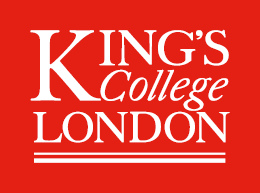SURE is a psychometrically valid, quick and easy-to-complete outcome measure, developed with unprecedented input from people in recovery. It can be used alongside, or instead of, existing outcome tools.
- ‘SURE’ measures recovery from drug and alcohol dependence
- ‘SURE’ is completed by people in recovery (not by clinicians, researchers or others)
- ‘SURE’ has good face and content validity, acceptability and usability for people in recovery
- SURE’ comprises 21 items (5 factors) and is psychometrically valid, quick and easy-to-complete
- ‘SURE’ can be used by individuals in private or in a therapeutic context
How to score SURE
Scoring of SURE is simple. There are 21 questions and each question scores 1, 2 or 3. This means it is possible to score between 21 and 63.
For questions numbered 1-3
- Never = 3
- On 1 or 2 days = 3
- On 3 or 4 days = 2
- On 5 or 6 days = 1
- Every day = 1
For questions numbered 4-21
- All of the time = 3
- Most of the time = 3
- A fair amount of the time = 2
- A little of the time = 1
- None of the time = 1
Section C is not scored, but allows people to think through their own priorities in recovery
Accessing SURE
You can download SURE here (PDF 250KB)
You can now complete SURE online here
You can also follow us on Twitter: @SURE_Recovery
Copyright
Copyright © 2016 King’s College London
All rights reserved.Any redistribution or reproduction of part or all of the contents in any form is prohibited other than the following:
- you may print or download to a local hard disk extracts for your personal and non-commercial use only
- you may copy the content to individual third parties for their personal use, but only if you acknowledge the source of the material
- Use within not-for-profit charities or health care settings does not require a licence
You may not, except with our express written permission, distribute or commercially exploit the content. Nor may you transmit it or store it by electronic means or otherwise, without the written permission of King’s College London as it will constitute an infringement of copyright. If you wish to obtain a commercial copyright licence for this measure, then please contact King’s College London’s IP& Licensing Team: [email protected].
Funding
The development and validation of SURE was funded by the National Institute for Health Research (NIHR) Biomedical Research Centre for Mental Health at South London and Maudsley NHS Foundation Trust and King’s College London.
References
Neale, J., Finch, E., Marsden, J., Mitcheson, L., Rose, D., Strang, J. Tompkins, C., Wheeler, C. and Wykes, T. (2014) ‘How should we measure addiction recovery? Analysis of service provider perspectives using online Delphi groups’, Drugs: education, prevention and policy 21, 310-323.
Neale, J., Tompkins, C., Wheeler, C., Finch, E., Marsden, J., Mitcheson, L., Rose, D., Wykes, T., and Strang, J. (2015) ‘”You’re all going to hate the word ‘recovery’ by the end of this”: service users’ views of measuring addiction recovery’, Drugs: education, prevention and policy 22, 26-34.
Neale, J. and Strang, J. (2015) ‘Blending qualitative and quantitative research methods to optimise patient reported outcome measures (PROMS)’, Editorial, Addiction 110, 1215-1216.
Neale, J. and Strang, J. (2015) ‘Philosophical ruminations on measurement: methodological orientations of patient reported outcome measures (PROMS)’, Editorial, Journal of Mental Health 24, 123-25.
Neale, J., Panebianco, D., Finch, E., Marsden, J., Mitcheson, L., Rose, D., Wykes, T., Strang, J. (2016) ‘Emerging consensus on measuring addiction recovery: findings from a multi-stakeholder consultation exercise’, Drugs: education, prevention and policy 23, 31-40.
Neale, J., Vitoratou, S., Finch, E., Lennon, P., Mitcheson, L., Panebianco, D., Rose, D., Strang, J., Wykes, T., Marsden, J., (online) ‘Development and validation of ‘SURE’: A patient reported outcome measure (PROM) for recovery from drug and alcohol dependence’, Drug and Alcohol Dependence. http://authors.elsevier.com/sd/article/S0376871616301521.
Further information
For any research-related queries or queries relating to use of the tool with service users, please email [email protected] or [email protected].

